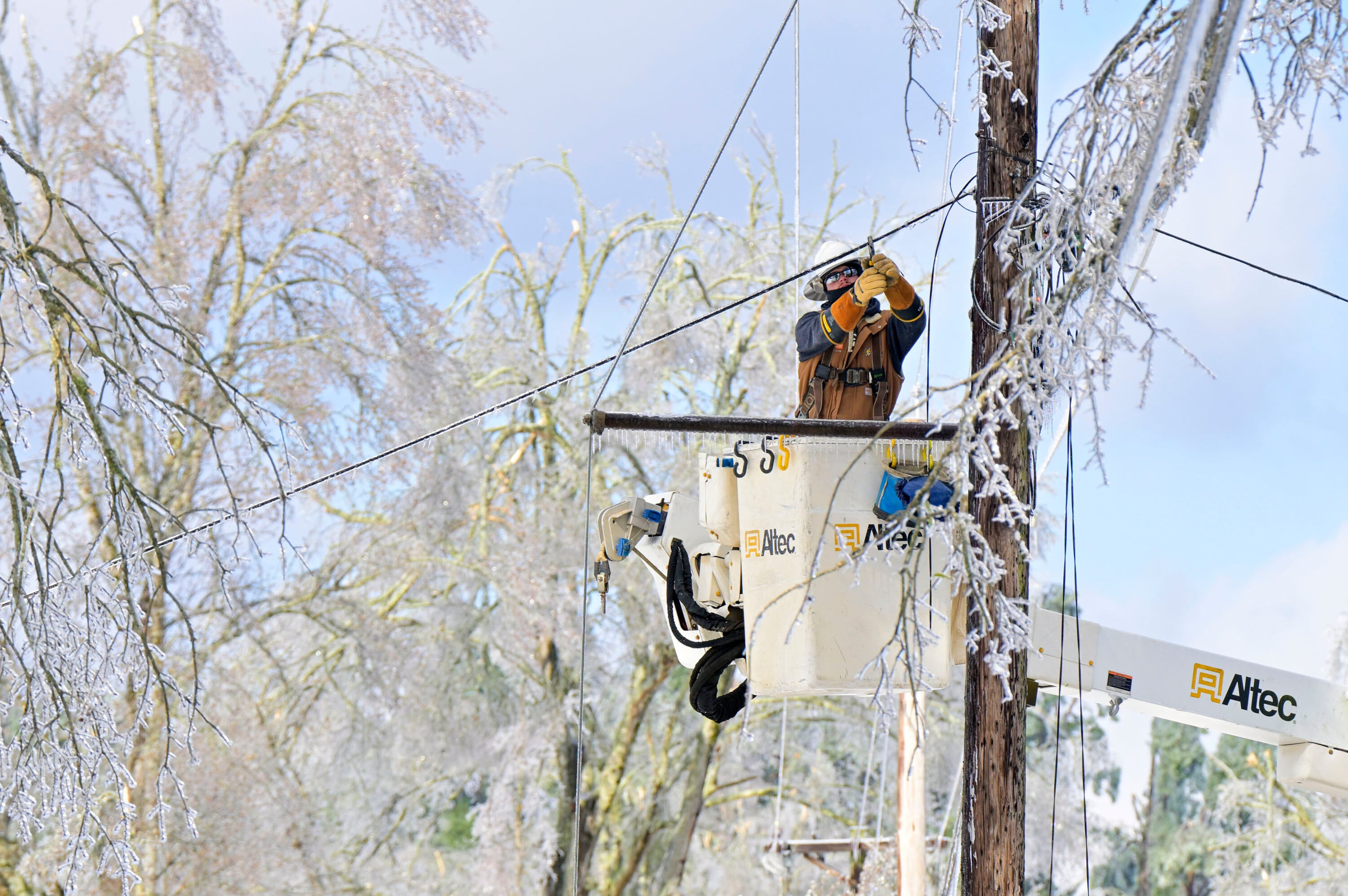Georgia economy and workers entangled in threatened rail strike
NOTE: Word came Thursday that the strike had been averted. Click here for more details.
A threatened rail strike could affect several thousand rail workers in Georgia and tie up thousands of containers at the Port of Savannah while adding to delays and costs for consumers and companies.
The widespread shutdown, set for Friday, hinges on talks among railroad companies — including Atlanta-based Norfolk Southern — and unions representing about half the nation’s 115,000 railway workers. The outcome has implications for the labor movement, the political climate and the economy.
Snarled supply chains have been a chronic problem through much of the pandemic and since about 40% of the nation’s goods are moved by rail, a strike could add to inflation and worsen shortages of some goods, said Ray Hill, professor of finance at Emory’s Goizueta Business School.
“Atlanta’s a major rail hub,” he said. “I’d expect the effects to be bigger here than elsewhere.”
But the intensity of the impact depends on a strike’s duration, he said. “If it lasts, it will just make everything we’re going through worse.”
For workers, the stakes are conditions they say are harsh and unfair, including extended work periods without a day off. For the economy, the stakes are roughly $2 billion a day, according to an industry estimate.
And with economic concern a potent political factor, the negotiations have drawn in White House officials and Labor Secretary Martin Walsh, himself a former union leader.
A dozen unions currently represent rail workers. Two of the largest have not reached a deal with the companies.
Recommendations for a deal were offered by the Presidential Emergency Board, appointed this summer, but agreement has been elusive. If there is a strike, Congress could intervene, the way it did in 1992 after the machinists union struck CSX. Congress passed a bill that compelled agreement, it was signed by then President George H.W. Bush and the strike ended after two days.
Norfolk Southern said in a statement that, in preparation for a strike, it has stopped moving certain kinds of shipments to make sure that “hazardous and other security-sensitive freight is properly secured (and) not left stranded.”
The company, which shifted its headquarters to Atlanta last year from Virginia, has 3,556 employees in Georgia. Some of them, however, are represented by unions that have reached an agreement on a new contract, so it is hard to know how many would walk out if there is a strike.
“We have communicated to all parties in the negotiations that we will not lock out union employees,” Norfolk Southern said. “Our goal is to keep our nation’s economy moving, serve our customers, and reach agreements with the remaining unions.”
Norfolk Southern operates on 1,706 miles of track in Georgia, with containers accounting for the lion’s share of its freight, according to the company.
Many of those containers come from — or go to — the Port of Savannah, which last month handled 575,513 container units in August, much of it then carried on truck, train or both. Metro Atlanta accounts for more than half of that traffic, If there is a strike, the Georgia Ports Authority plans to make all of the cargo available for transit by truck.
That could add dramatically to the need for trucks and drivers, already in short supply. About 80,000 drivers and 460,000 trucks would be needed to replace freight trains, according to a letter sent to Congress by the American Trucking Associations.
But even if all the Atlanta-bound cargo can be picked up, thousands of other containers bound for Memphis, Nashville and Dallas would be stacked at the port to await pick-up at the end of a rail strike, officials said.
“These options give (the authority) the ability to absorb the impact of unexpected variances in trade while maintaining the fluid movement of cargo,” the authority said in a statement.
While the Port of Savannah is one of the nation’s largest container ports, to the south, the Port of Brunswick handles import and export of tens of thousands of vehicles, more than 20% of them moved by rail.
Cars for export can be shifted to truck. Imported vehicles can be stored at the port, officials said.
Amtrak said this week that it is temporarily cancelling service on some long-distance routes to prevent “passenger disruption.” Atlanta is not one of the cities affected so far.
The unions threatening a walkout are the Sheet Metal, Air, Rail and Transportation Workers, which is part of the AFL-CIO, and the Brotherhood of Locomotive Engineers and Trainmen, which is part of the Teamsters.
They accuse the companies of bringing on the problem with staffing cuts and draconian scheduling.
Whatever happens with the negotiations will carry a symbolic message since it comes at a time of greater labor activity and more aggressive organizing around the country.
Even in Georgia, a historically anti-union environment, unions have become more active, said Charles Flemming, president of the Georgia AFL-CIO. “There’s a change in the air.”
Georgia and the threatened rail strike
Norfolk Southern
Based in Atlanta since 2001
3,556 employees
1,706 miles of track
2,464 crossings
1.5 million carloads exported and imported in year
$59 million in purchases, payments and taxes (2021)
Port of Savannah
Handled 575,513 container units last month
55% of units going to metro Atlanta
Rail trade to be switched to truck for metro Atlanta
Trade for other metros will be stacked up until strike ends
Sources: Georgia Ports Authority, Norfolk Southern



